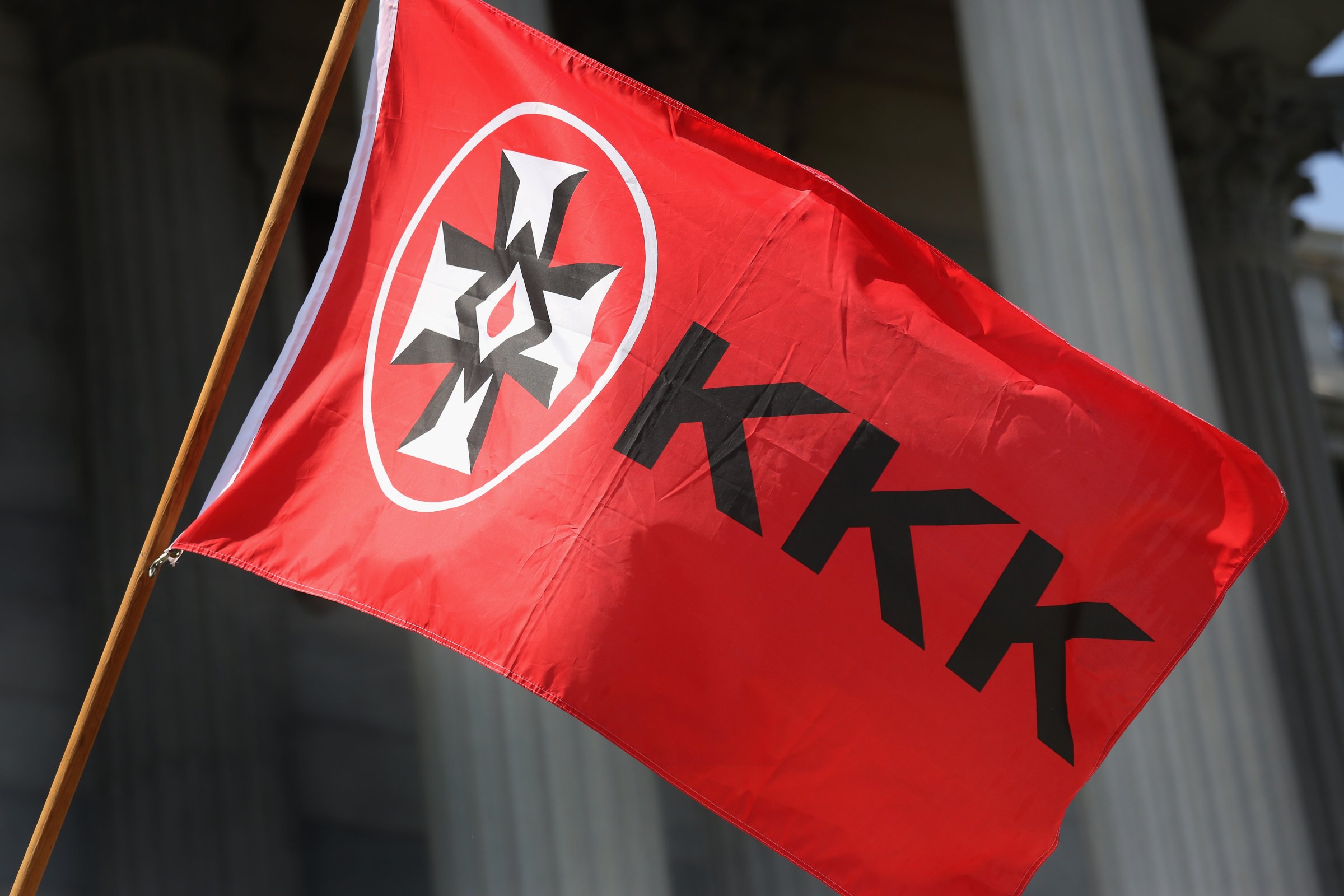
The leader of a prominent Ku Klux Klan chapter pushed back on Monday against the hacking group Anonymous, saying that the claim that Klan member identities were leaked online is “bogus.”
Thomas Robb, the national director of the Knights of the Ku Klux Klan, told TIME in an interview that while it’s possible some data from minor KKK chapters were leaked, his membership remains a safely guarded secret.
The Knights’ membership data is kept on two computers that are immune to Internet hacking, Robb said.
“One computer is right here in my house and it’s not connected to the Internet. I’m looking at it right here,” Robb said. “The other computer is at the main office just down the road, and it’s the same way: not connected to the Internet.”
If hackers wanted to access the membership data, they would have to break into his house, Robb said.
“They’d have to come in here and download it directly at the computer on a floppy disk—or, a drive—and it would be absurd for them to say that,” Robb said.
The hacking activist group Anonymous claimed last week that it has obtained numbers and emails of the KKK’s membership, and will post that information online. Some of it seemed to appear on Sunday evening on Pastebin, a website used to share and store text.
There is not much evidence to prove the information posted Sunday is real, however.
Some of the email addresses of alleged KKK members end in the .ru domain, typical for Russian accounts. A majority of the phone numbers listed appeared to be disconnected. One number tried by a TIME reporter was the main line for the Capital Region International Airport in Lansing, Michigan.
A group affiliated with Anonymous said it was not responsible for releasing the names.
The data dump claims several senators and mayors in the South are members. The mayor of Lexington, Kentucky, who was included in a list of names, has vigorously denied his involvement with the group, calling the claims “insulting.”
”I have never had any relationship of any kind with the KKK. I am opposed to everything it stands for. I have no idea where this information came from, but wherever it came from, it is wrong,” Mayor Jim Gray said.
Anonymous—a loose network of hackers whose targets have included Israel, Visa, Sony and the Westboro Baptist Church—said it is striking back at the KKK for threatening protestors in Ferguson.
“Originally, we did not attack you for your beliefs as we fight for freedom of speech,” Anonymous said in a statement. “We attacked you due to your threats to use lethal force in the Ferguson protests.”
The KKK was founded as a terrorist, white supremacist group meant to fight integration and Reconstruction in the South, responsible for serial acts of violence and intimidation against African Americans. The group resurfaced in the 1920s, and again in the end of the 20th century.
Today, the KKK consists of a disparate array of white supremacist groups, many with different policies. Some are deeply ritualistic and consist of a hierarchy of orders. Many chapters of the KKK closely conceal the identities of members who believe their jobs and social standing could be at risk.
A second KKK leader, Imperial Wizard Chris Barker of the Loyal White Knights, told TIME that he does not keep electronic records of his members. He added that most Klan members are not afraid of being known.
“We do public demonstrations,” Barker said. “You won’t see none of our members running around with a mask.”
Robb, the national director of the Knights of the KKK, argued that Anonymous is publishing names to deter people from joining the groups. “They put out this information because it keeps people from connecting with a group like ours,” Robb said.
More Must-Reads from TIME
- Cybersecurity Experts Are Sounding the Alarm on DOGE
- Meet the 2025 Women of the Year
- The Harsh Truth About Disability Inclusion
- Why Do More Young Adults Have Cancer?
- Colman Domingo Leads With Radical Love
- How to Get Better at Doing Things Alone
- Michelle Zauner Stares Down the Darkness
Contact us at letters@time.com